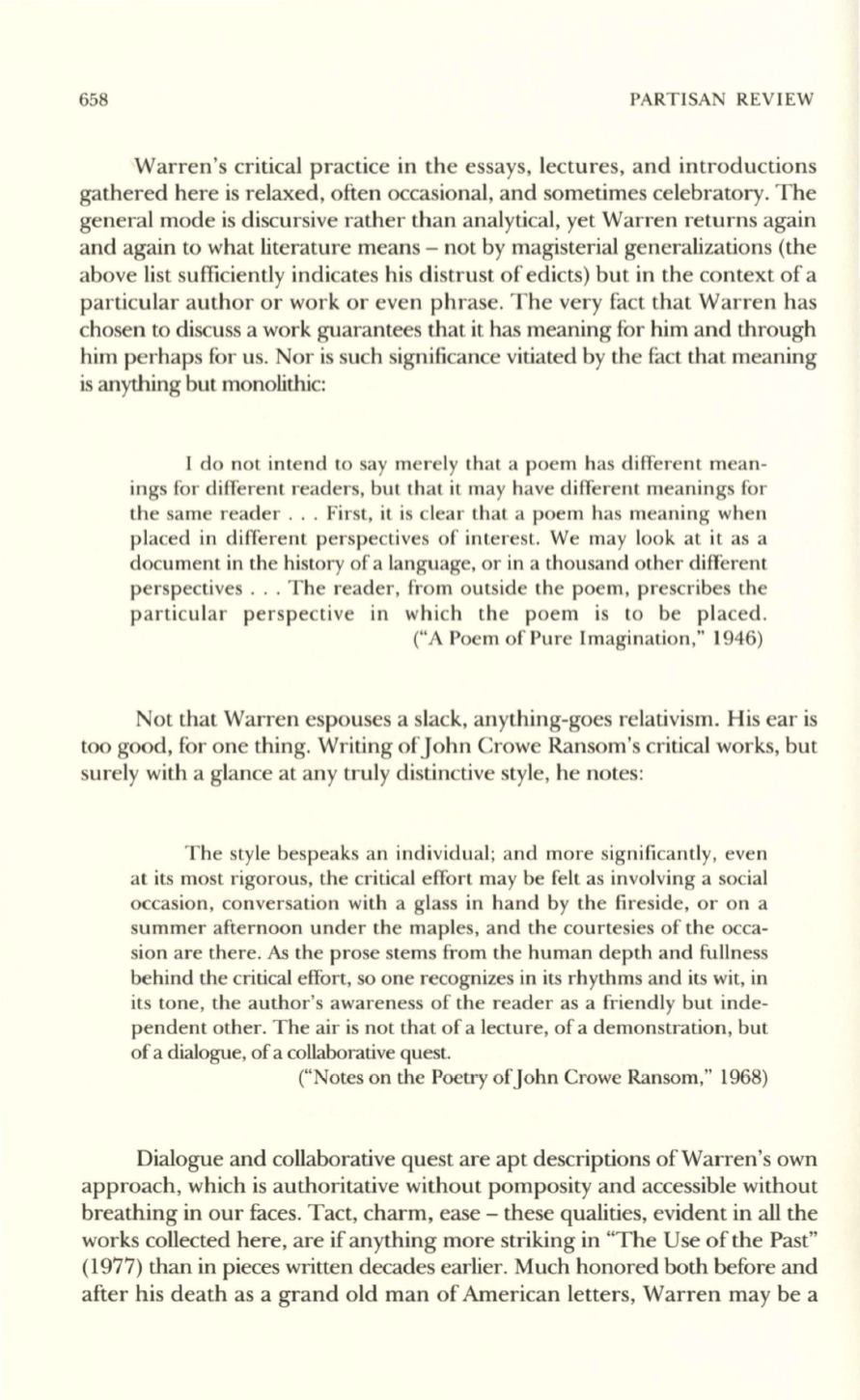
658
PARTISA REVIEW
Warren's critical practice in the essays, lectures, and introductions
gathered here is relaxed, often occasional, and sometimes celebratory. The
general mode is discursive rather than analytical, yet Warren returns again
and again to what literature means - not by magisterial generalizations (the
above list sufficiently indicates his distrust of edicts) but in the context of a
particular author or work or even phrase. The very fact that Warren has
chosen to discuss a work guarantees that it has meaning for him and through
him perhaps for us. Nor is such significance vitiated by the fact that meaning
is anything but monolithic:
I do not intend to say merely that a poem has different mean–
ings for different readers, but that it may have different meanings for
the same reader ... First, it is clear that a poem has meaning when
placed in different perspectives of interest. We may look at it as a
document in the history of a language, or in a thousand other different
perspectives ... The reader, from outside the poem, prescribes the
particular perspective in which the poem is
to
be placed .
("A Poem of Pure Imagination," 1946)
Not that Warren espouses a slack, anything-goes relativism. His ear is
too good, for one thing. Writing ofJohn Crowe Ransom's critical works, but
surely with a glance at any truly distinctive style, he notes:
The style bespeaks an individual; and more significantly, even
at its most rigorous, the critical effort may be felt as involving a social
occasion, conversation with a glass in hand by the fireside , or on a
summer afternoon under the maples, and the courtesies of the occa–
sion are there.
As
the prose stems from the human depth and fullness
behind the critical effort, so one recognizes in its rhythms and its wit, in
its tone, the author's awareness of the reader as a friendly but inde–
pendent other. The air is not that of a lecture, of a demonstration, but
ofa dialogue, ofa collaborative quest.
("Notes on the Poetry ofJohn Crowe Ransom," 1968)
Dialogue and collaborative quest are apt descriptions ofWarren's own
approach, which is authoritative without pomposity and accessible without
breathing in our faces. Tact, charm, ease - these qualities, evident in
all
the
works collected here, are
if
anything more striking in "The Use of the Past"
(1977) than in pieces written decades earlier. Much honored both before and
after his death as a grand old man of American letters, Warren may be a


